
 Flash News
Flash News
Scandal at Belgrade airport/ Bus with Albanians blocked by police, then locked on plane
Accident in Kosovo, 1 victim and 4 injured reported
The appeal of the GJKKO upholds the prison sentence for Gjergj Cukali
Man arrested after setting fire to aunt's apartment
Tirana/ 59-year-old man falls from the second floor of his apartment
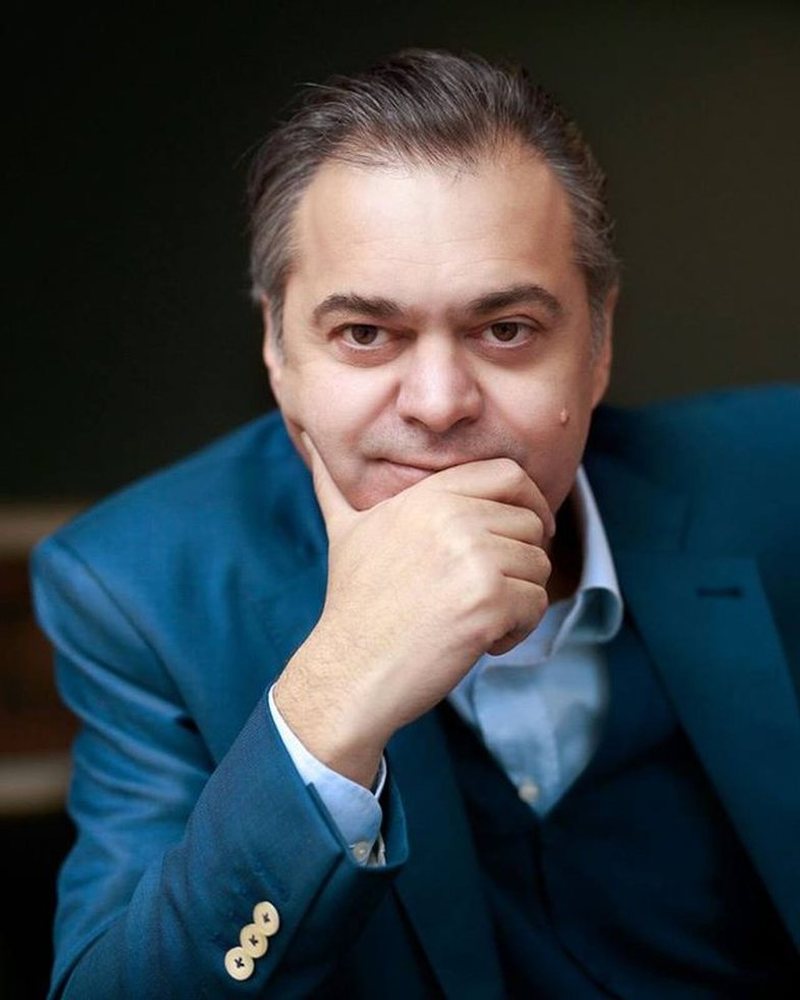
by Ben Blushi*
If the world religions were to gather in a Great Museum, Bektashism would occupy a small room there.
This small room, which would be in Albania, would show some unpleasant things.
And here's why.
The history of Bektashism is new, not even 800 years old.
Bektashism is considered a deviation and is not supported by any major state, as is the case with other religions. He is a boy driven from home, a rebellious troublemaker and violator of principles, a bad reader of the Koran, and even a kind of graft.
Indeed, no religious product is more grafted between Sunni Islam and Orthodox Christianity than Bektashism. This grafting of prehistoric trees took place in Albania in the 18th century, where Islam and Christianity coexisted inside a bed, a house, a village, a neighborhood, and a province. Because of this long coexistence, a new product was born.
This was Albanian Bektashism. A graft. A way of survival.
After Skanderbeg, Bektashism was the only form of Albanian protest against the Turkish Empire. Christians who were violently converted to Sunnis gladly returned to Bektashi. The mosques were more welcoming than the mosques, there you could sleep as much as you wanted, eat well, drink and sing. As a Bektashi, you could pray twice daily and have more time for work. As a Sunni, you have to pray five times a day, and you will work less. Women entered the mosque freely whenever they wanted in the presence of men.
Bektashism was more practical than Islam, and this happened to some Albanians of the Middle Ages who were used to daily work. Unlike the Arabs, who could not plant the desert and had little time to pray, they had to work the fields every day, as they had done from the weather.
Bektashism was, therefore, an elegant rejection of Islam. It was a kind of opportunism.
The Albanians seemed to say to the Turks, "We will become Muslims but in our way." And a not small part was made. But unlike the Christians who had Greece, the Catholics who had Austria-Hungary, and the Muslims who had Turkey, the Bektashis only had Albania.
That's why they didn't work for or be manipulated by any other country. Nobody loved them except Albania, which they also loved as the only Motherland. If Albania were bigger, there would be more of them.
But Bektashism was not always a jovial dervish who sat in the shade of a tree, drank brandy, and then sang and healed women with mystical methods. His life has not been so happy every day.
Bektashism has had many battles with Sunni Islam, which was the dominant religion in the Ottoman Empire. The Turks banned Bektashism twice and closed their gates. Once in 1826, when the Sultan killed 4000 Bektashi janissaries in one night, and the second time in 1925, when Turkey tamed all the dervishes. Although Ataturk was secular, he did not close the mosques, but he did.
Not only because the Bektashi patriarch of 1925, Sali Njazi, who Ataturk expelled, was an Albanian from Cologne, but mainly because of this Albanian tradition of opportunistic rejection of the Ottoman Empire, Ahmet Zogu sheltered the Bektashis. If Bektashism had not done it, it would have disappeared. No one else in the Balkans could accommodate the Bektashis, certainly not in Europe, but neither in Turkey nor Iran and even less in Arabia.
Bektashism was the bad boy of Islam that Albania adopted.
But Ahmet Zogu did not shelter the Bektashis as compatriots without a homeland nor as religious immigrants. He was cold and had no such emotions. On the contrary. He accommodated them by making a strong political gesture. After the Declaration of Independence in 1912, the acceptance of the Bektashi as opponents of the Ottoman Empire was the second act of liberation from Turkey, which Ahmet Zogu did on purpose. Although his political goals were sometimes unclear, getting rid of the Turkish Empire at all costs was the goal he worked towards successfully every day.
Ataturk, the most emancipated Turk of all time, did not forgive Zog, who was not upset like any other person who did something to upset someone else. He conscientiously harbored the Bektashis to annoy Turkey, and this was a well-deserved revenge, albeit a small one, compared to what Turkey had done to Albania.
Before Ahmet Zogut, two other Albanians, a pasha and a poet, both citizens of the Turkish Empire, had protected the Bektashis, one with a gun and the other with a pen, each in their way. One was rougher and more pragmatic, the other more fragile and romantic.
They were Ali Pashë Tepelena and Naim Frashëri.
Although the former had chaotic political goals and the latter had only clear literary goals, both supported the Bektashis as a way of opposition to the Ottoman Empire. They were two anti-Ottoman Ottomans. They supported the internal opponents of Turkey, on whom they projected themselves. They told the Albanians that Bektashism was the third path that reconciled the East with the West, Islam with Christianity, and Albania with itself.
And for the sake of truth, Bektashism was the third way. This is the historical truth.
Bektashism is a dolce amaro, a bitter Ashura of the time when the Ottoman Empire occupied Albania and Albanians were forcibly converted.
If the Museum of World Religions had a stand for violent conversion, the Albanian stand would be more prominent than any other stand. Albania is proof of religious violence, which people try to avoid by sparing their souls and finding bearable forms of pain, one of which was Bektashism.
Bektashism was a way to suffer less, therefore the story of the Bektash is the story of resistance to violence, during the fatal invasion of the Turkish Empire, which is the greatest disaster that has befallen us throughout history.
When Europeans set out to colonize the Americas in the late 1400s, the Turks set out to conquer Europe. Since they had not succeeded several times, they stopped in Balkan and disfigured us for 500 years there. No people, like the Albanians, carried the barbaric weight of the Ottomans more on their backs.
When they fled, they left behind no bridge, no road, no port, no construction, no institution, no hospital, no school, but only dust and misery, and when I see that today, they call us brothers. I honestly believe that they have; I think that the relationship of love between brothers in Medieval Turkey was something very bloody.
But you can't choose the invaders, and we didn't choose the Turks. In a sense, they fell to us in parts.
The invaders are unacceptable in any case, whoever they are, but the European colonizers who went to America exactly at the time when the Turks came to Albania belonged to a more emancipated civilization than the natives. They brought their arts, technology, crafts, cooking, hygiene, medicine, and weapons, and although they ruthlessly exterminated, they helped the natives out of the tribal conditions they were living in.
But in our case, the opposite happened. Our conqueror was more backward than we who were conquered.
Pre-Ottoman Albania was a normal European country, which did not have the dazzling splendor of Venice and the muscles of the armies of Naples. Still, it had institutions, laws, codes, diplomacy, coins, circulated goods, paid taxes, and people moved freely. Albanian was written, and Latin at that time was like English today.
The biggest damage the Turks did to us was that they stripped us of our desire for work. They turned us into lazy people, a quality that still shines in our chests. Even the most patriotic historians cannot explain what work we did for 500 years, except that we were fed and prayed for, waiting for God to do for us what we did not do for ourselves.
And the second damage was the destruction of our homogeneity as a people. A more homogeneous people in the religious and national sense, because these two pillars were unresolved in the Middle Ages, would have had an easier path of history. Apart from other comforts, the fiery debate between the Bektashites and their opponents would not be so hot today, or it would not be at all if we were a homogeneous and undivided community.
This small division with big impact, which some call big division with small impact, is a Turkish fish that we pretend to have chosen ourselves and call by the modern term tolerance. We did not choose this gift, but it was imposed on us. They converted us by force, taking away our children, property, and weapons. Very often, even life.
For those who cannot understand what has happened in those 500 years, it is the same as if a foreign power came to Albania today and took all the mobile phones, televisions, books, and photographs we have at home, opened the chests, and disappeared the memories of grandparents and great-grandparents, to burn archives, to stop us from cooking the meats and drinks we want, to close our schools, to kidnap our children for his army, to isolate us from the world, to destroy bridges, roads and aqueducts and all this excruciating darkness to last 500 years. Of course, those of us who would survive when we got out of this lousy cage would be half-human.
That's how we were in the 1900s.
That's why when we came out of this hell, they massacred us even worse by robbing us of our territories because we didn't have the power to protect the lands where
we lived. We came out as a nation without a state because the Turks destroyed our state and, for a while, the nation. If it were not for the Turkish Empire, Albania would not have been divided as it happened in 1913, and today, it would be a country twice as big. Surely, all Albanians, or most of them, would live within their state.
But it doesn't end there.
If it wasn't for the Turkish Empire, Albanian communism wouldn't have been so tragic. Communism was the last closing phase of the Ottoman Empire. It was a blinding after-dark—like having your eyes poked out of a long, almost eternal tunnel.
If we had not come out so poor and so miserable from 500 years of captivity, maybe we would not have become a communist country at all because the main food of communism is poverty and misery. This is the reason that we had the most brutal communist regime not only in Europe but on the whole planet, and nothing like him in the fantasy he had to limit personal freedoms.
The Turkish Empire waters the roots of Albanian Communism, and this dirty water continues to pass through the foundations of our house even now as we speak.
This is the truth.
That is why the debate about Bektashism, a project of resistance to the Turkish Empire, is today so burning, cunning, and dishonest. The rest of the Turkish Empire haunts Bektashism and our forgotten memories.
The Bektashi showcase would show the face of the Turkish Empire, the product of which the Bektashi themselves are. This part of history has been very cunningly hidden from the Albanians and the world, so much so that we are the only people who consider Skenderbeu the father of the nation and simultaneously consider his enemies as brothers.
As an atheist, this debate does not interest me. The more I understand, the more I am convinced that God exists, but only in our minds. I believe that religions have hindered the progress of humanity, delayed science, attacked the arts and brought only division and division to the world, therefore they do not deserve to have a state.
Building more places of worship, churches, and mosques is a wasteful investment. 200 or 300 years later, they will be empty. Science will have emptied them for our good. A modern state has only one task: to help religions retreat equally without encouraging them to compete to see who runs the slowest toward extinction.
The debate about a religious state interests me like beautiful literature. I could write hundreds of pages imagining how it is to live inside the "state within the state" with music, toys, tambourines, entertainment, and dervishes riding on buggies that regulate the traffic of an uninterrupted religious pilgrimage.
A country where free Ashura is served to sweeten the bitter tongues of the world would be much more exotic than the Vatican, where nothing is forgiven, and much more liberal than Mecca, where you must undress on command. Tirana and Albania would earn millions from this traffic of pilgrims, but this is only a literary economy.
The most interesting part of this country without the police, army, taxes, elections, trade unions, televisions, traffic, ports, or airports would be the Museum, where the Albanian Resistance, of which the Bektashis are also a part, would be exhibited.
In this Museum, I would serve every night as a guard to protect it from those who want to burn it as they burned it.
*Author's Facebook page.
Latest news


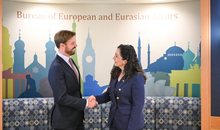
Osmani visits Washington, meets with the acting Assistant Secretary of State
2025-07-09 18:03:26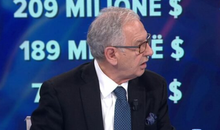
EU report, Nesho: Europe is fed up with propaganda
2025-07-09 17:50:34
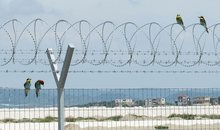
EP urges Albania to halt controversial projects damaging the environment
2025-07-09 17:26:18
Self-talk, the secret that helps us calm our minds
2025-07-09 17:19:55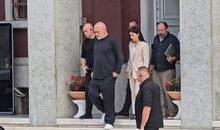
Our Prime Minister's 1000th day!
2025-07-09 17:11:24
Accident in Kosovo, 1 victim and 4 injured reported
2025-07-09 17:01:27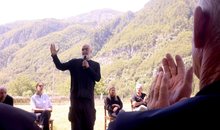
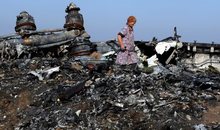
European Court finds Russia guilty of violations in Ukraine
2025-07-09 16:45:35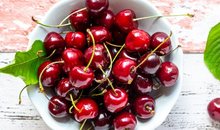

The appeal of the GJKKO upholds the prison sentence for Gjergj Cukali
2025-07-09 16:09:42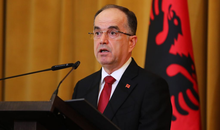

For a perfect tan, you should eat these foods
2025-07-09 15:55:05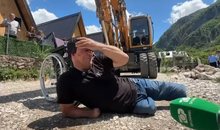
A little light, oh prince...
2025-07-09 15:46:08
Can you protect Velina by serving Edi Rama?
2025-07-09 15:37:51
Bosnian court lifts detention order for Republika Srpska leaders
2025-07-09 15:23:01

Milk production follows the decline of livestock farming
2025-07-09 14:59:38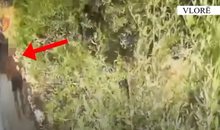
Man arrested after setting fire to aunt's apartment
2025-07-09 14:54:17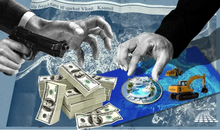

3 in 4 people who go to parties regularly will remain single for life
2025-07-09 14:29:47
Trump threatens to bomb Moscow if it attacks Ukraine
2025-07-09 14:28:40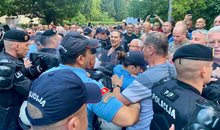
Clashes in Montenegro after prestigious award given to Montenegrin nation-denier
2025-07-09 14:15:48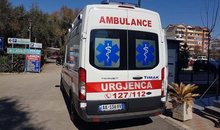
Tirana/ 59-year-old man falls from the second floor of his apartment
2025-07-09 14:05:28


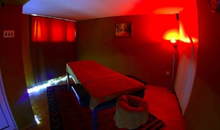
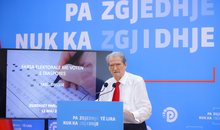
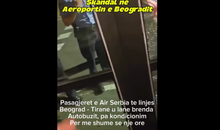

Edi Rama's summer Delirium
2025-07-09 13:05:42
Wanted by Italy, drug trafficker arrested in Durrës (NAME)
2025-07-09 12:50:13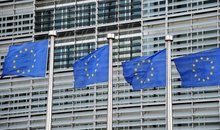
European Parliament adopts report on Albania
2025-07-09 12:44:25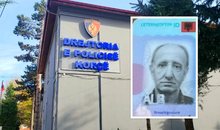
NAME/ Elderly man found dead in Devoll River, investigation leads
2025-07-09 12:24:47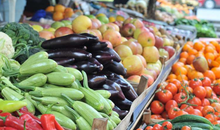
Taxes warn of on-site inspection for invoice sales of agricultural products
2025-07-09 12:20:59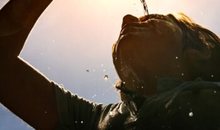
Climate change tripled heat-related deaths in Europe
2025-07-09 12:10:28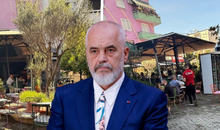
From the ground to paper, Rama announces new reform for "untouched lands"
2025-07-09 11:58:17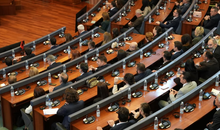
The 44th attempt to create a new Assembly for Kosovo also fails
2025-07-09 11:45:22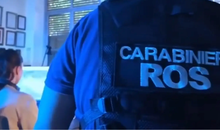
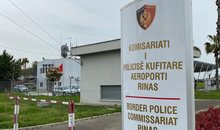
The head of the Rinas police station is reconfirmed in office
2025-07-09 11:25:03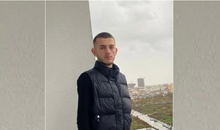
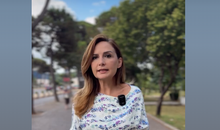
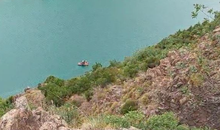
Found dead in Shkopet Lake, 23-year-old has injuries to his throat
2025-07-09 10:41:39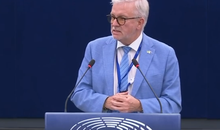
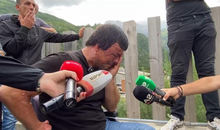

Hoxha: We will have a parliament that will surpass any comedy program!
2025-07-09 10:10:32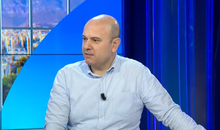
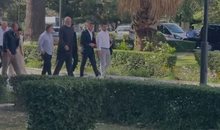
Directors targeted! After Fier and Durrës, Rama arrives in Elbasan
2025-07-09 09:53:57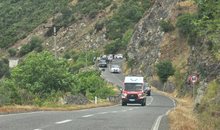
Name/Identification of the 23-year-old found dead near Shkopet Lake
2025-07-09 09:42:34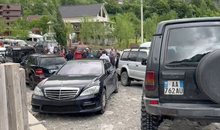
IKM action in Theth, residents come out in protest
2025-07-09 09:34:54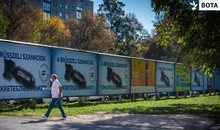
Reasons why the EU has not imposed new sanctions against Russia
2025-07-09 09:18:35
DW: Online scams increase human trafficking
2025-07-09 09:01:29
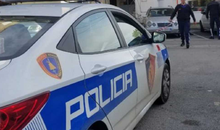
Reported missing by his father, 23-year-old found dead near Shkopet lake
2025-07-09 08:42:13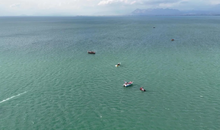
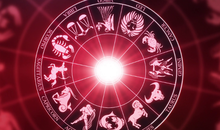
Horoscope, what do the stars have in store for you today?
2025-07-09 08:25:44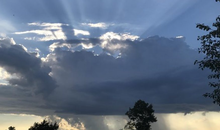
Sun and rain, Wednesday with unstable weather
2025-07-09 08:06:58
Posta e mëngjesit/ Me 2 rreshta: Çfarë pati rëndësi dje në Shqipëri
2025-07-09 07:52:02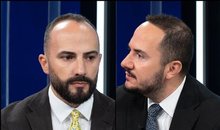

Tabaku: Salianji bore a political cost that no one in Albania has borne
2025-07-08 22:36:15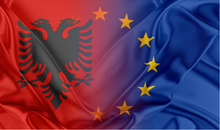

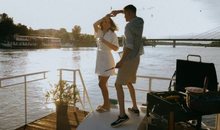
Sekretet për të shijuar verën si një ‘profesionist’
2025-07-08 21:45:06
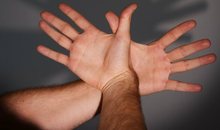
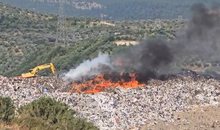
Albania's Waste Crisis: Toxic Smoke and Deep Governance Problems
2025-07-08 21:13:07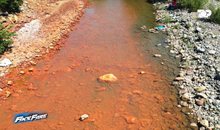
Alarming pollution in Fushë-Arrëz, copper factory waste turns the Fan River red
2025-07-08 21:07:14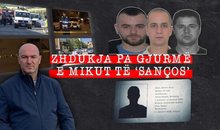

Poll/ How do you assess the Prime Minister's intervention in local government?
2025-07-08 20:40:01
28 arrested in Italy and Spain for drug trafficking, including an Albanian
2025-07-08 20:24:14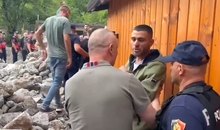
Residents clash with police in Theth: We are on our land
2025-07-08 20:11:41
Death of 27-year-old in Lipjan, Osmani: To be investigated independently!
2025-07-08 20:06:52
Trump promises US will send more weapons to Ukraine
2025-07-08 19:54:25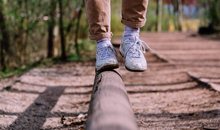
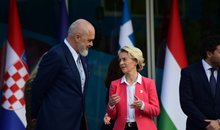
EU targets health, education, police and cadastre as areas of corruption
2025-07-08 19:23:34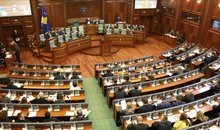
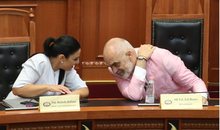
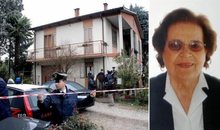
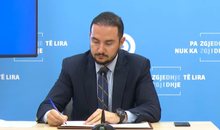

Salianji after his return: I did not oppose for functions, but for vocation
2025-07-08 18:23:15
Will he run in the 2029 elections? Here's how Salianji answers
2025-07-08 18:16:09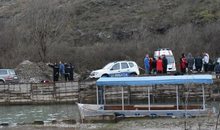
Boat captain drowns after diving into water to save two tourists in Shkodra
2025-07-08 18:05:12
Salianji from the DP headquarters: I brought a drug trafficker to justice
2025-07-08 18:03:26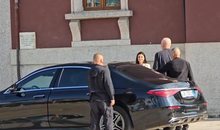
After Fier, Rama "landes" in Durrës, dismissals expected
2025-07-08 17:53:32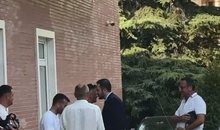
Ervin Salianji arrives at the blue headquarters, welcomed by supporters
2025-07-08 17:45:12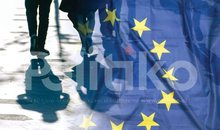
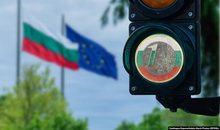
EU approves final steps for Bulgaria's Eurozone membership
2025-07-08 17:43:06

Zhupa after Salianj's release: Inspiration for every opposition member
2025-07-08 17:19:39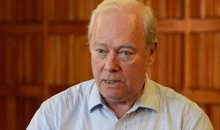
Actor David Killick passes away
2025-07-08 17:09:23
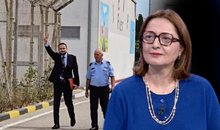

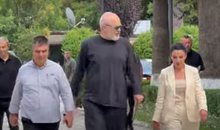
Threatened with dismissals, Rama arrives at the Fier municipality
2025-07-08 16:39:19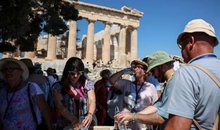
Extreme temperatures temporarily close Acropolis in Greece
2025-07-08 16:30:34
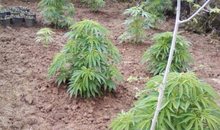
A plot of cannabis is discovered in Mazha, Kruja
2025-07-08 16:13:48
